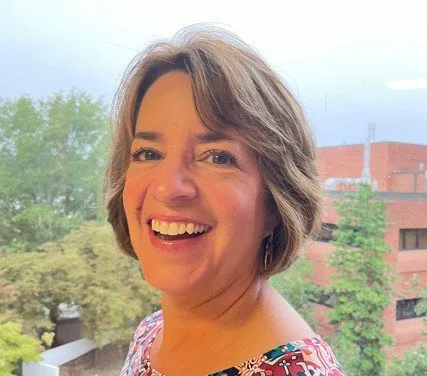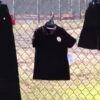
Conversations about serious illness and advance care planning (ACP) can be challenging for health care providers, patients and caregivers – but nursing professor Tracy Fasolino believes these conversations are vital in aligning care with patients’ wishes.
Fasolino is currently working on a project to help health care teams recognize the essential role of spiritual leaders in serious illness conversations in rural African American and Black communities. Her project is part of an initiative through the Rita and Alex Hillman Foundation (RAHF) which has awarded seven grants to support bold, early-stage interventions that seek to radically improve the provision of care for the seriously ill and those at the end of life.
These Hillman Foundation-funded Serious Illness and End of Life (HSEI) grants help to catalyze nursing-driven efforts to elevate care for communities that face discrimination and indifference.
Fasolino’s project, called Project SUNDAYs, explores how religion and spirituality shape conversations about serious illnesses and end of life from the perspective of rural African American and Black faith leaders in local church assemblies. She said the project will explore a new model for developing care conversations with seriously ill African American and Black adults in South Carolina by first understanding the role of spirituality and religion in advance care planning and end-of-life wishes.
“African American and Black populations in rural communities have not been well represented in the national narratives about ACP, and our clinical teams recognize gaps in our approaches to caring for these patients,” Fasolino said. “We have very few training modules that fully acknowledge and address the impact of religion and spirituality on serious illness. We want to have these serious illness conversations and establish advance care planning before individuals find themselves critically ill and in the hospital.”
Working with Fasolino on the $50,000 grant are several faculty members from different departments in the College of Behavioral, Social and Health Sciences (CBSHS) – anthropology, communication, public health sciences and nursing. Faculty in the College of Education are also participating.
Over the course of 16 months, they are interviewing and learning from 12 African American and Black pastors in rural communities throughout the Upstate. The team also has an advisory board that represents the entire state, with the addition of two chaplains in Kentucky.
The guidelines for the models of care allow the individual to outline their wishes related to the end of life, a voice that is currently missing – particularly the importance of their faith, religion and spirituality.
“As health care members, we want to respect patients’ wishes but many times we do not know what they want and do not have a solid understanding of the importance of their faith. Often, health care providers only use the biological foundation for ACP and miss that spirituality is a key factor in some rural faith-based communities,” Fasolino said. “We need this project – and advance care planning – because we do not have adequate information on this unique population to better align care with their wishes.”
Fasolino has dedicated several years of her career to improving health care in the Appalachia region and has previously worked as a Cambia Health Foundation 2021 Sojourns Scholar. Each Sojourns® Scholar receives $180,000 in funding to conduct an innovative clinical, policy, educational, health equity or systems project focused on elevating palliative care.
Through her work for the foundation, Fasolino’s project focused on the inequality of access to palliative care in rural Appalachia, specifically gaps in service for patients with chronic obstructive pulmonary disease (COPD) and their caregivers.
“With her expertise in health disparities that Appalachian communities face, Dr. Fasolino is a valued leader on this project, bringing together faculty across the College to help underserved populations,” said CBSHS Dean Leslie Hossfeld. “This project embodies the mission of our College to work together to improve the lives and health of those in our communities.”
The School of Nursing is part of the College of Behavioral, Social and Health Sciences, a 21st-century land-grant college joining together a unique combination of schools and departments: Communication, Nursing, Parks, Recreation and Tourism Management, Political Science, Psychology, Public Health Sciences and Sociology, Anthropology and Criminal Justice. These areas have distinctive characteristics and missions – all joined together by a common thread of service to people and communities.
Get in touch and we will connect you with the author or another expert.
Or email us at news@clemson.edu


